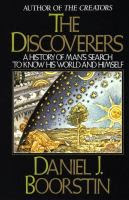I was doing a presentation at one of the schools the other day for grade six Sky Science (introductory astronomy for those of you not familiar with the Alberta curriculum) and a few of the students asked me about aliens, and UFOs, and such. I expected these after all this is what the various media outlets are feeding people now-a-days. In fact if you believed everything you saw in the media you probably think that every other person in the word was from another star system.
Now I don't want to sound like some type of a nay sayer, so to I'll make my stand clear. Yes, I believe that there is other life in the universe, and I hope that someday we will come in contact with them. This will likely be by detecting their radio transmissions, or some such as opposed to having a little green man knock on your door one morning and asking for a cup of anti-matter. But I don't believe they have ever visited us. Why? Read on for the first of my objections.
For those of you who have been weaned on a diet of "Close Encounters of the Third Kind", "Independence Day" and various other gems from Hollywood the chances of aliens having visited us are pretty slim, in fact they are essentially non-existant. Why? I knew you ask so I here goes:
"Space, is big. Really big. You just won't believe how vastly hughly mind-bogglingly big it is. I mean, you may think it's a long way down the road to the chemist, but that's just peanuts to space."
"The Hitchhiker's Guide to the Galaxy"
Douglas Adams (1952-2001)
Mr. Adams wasn't kidding either, and that's why I don't really believe that we've ever been visited - there's another reason too, but I'll get to that in days to come. So everybody agrees space is big, but how big is it? Well I just happen to have my copy the 2012 Observer's Handbook handy so flipping to page 291 (Table of Nearest Stars) we see that Proxima Centauri is 4.24 lightyears (ly), Alpha Centauri 4.36 ly, Barnard's Star 5.98 ly, and Wolf 359 7.78 ly distant. So this means that the light were seeing right this second from Proxima Centauri left there 4.24 years ago. For that matter if our sun was above the horizon as I write this the light that we would see from the sun left there 8.3 minutes ago (499.0047864 light seconds to be exact)
Now a light year is standard measure of distance. Sorry to break it to you, but Han Solo got it wrong in Star Wars IV when he said it was a speed factor. It is the distance light travels in one year. Now light goes 299728.458 kilometres per second (abbreviated as c)which when multiplied out gives you 9.458 x 10^12 or 9,458,000,000,000 km in a year (299728.458 x 60 x 60 x 24 x 365.25). A long way!
Now according to a certain rather famous scientist by the name of Albert Einstein it is impossible for an object of positive mass to reach (and therefore pass) the speed of light, so that means that any visitors would have to be travelling at a speed somewhat less than this speed limit. which therefore makes their journey that much longer. So if they were travelling at half light speed then Proxima Centauri is 8.48 years away.
By the way, for the time being I'm going to ignore all the hypothetical faster than light drives that have been postulated for many years in science fiction stories, as we have no idea if it is possible, and until someone rewrites the laws of physics as we understand them it really isn't worth worrying about. I'm also going to ignore the ideas of cold sleep / hibernation etc. in case your curious.
So what we have is a trip to Proxima Centauri that is going to take at least 8.48 years (at 1/2 light speed) and likely much longer (at 1/10 light speed it's 84.8 years). So what does this give us? Well, if a civilization was going to outfit a ship to travel from say Proxima Centauri to us, they would have to provide the crew with sufficient supplies (breathing gases, water, food, spare parts, etc.) to last the journey, and they would also have to devise a way for the crew to entertain themselves for the entire trip. Now I get bored on a car trip longer than a few hours, so I don't even want to imagine being stuck in some type of vehicle for 8.48 years (or 84.8 for that matter).
So as you can see one of the biggest arguments against us being visited is simply distance. Plain and simple. Now if you do accept faster than light drives, cold sleep / hibernation etc. this all changes, but that's what I'm going to talk about tomorrow.
TTFN




